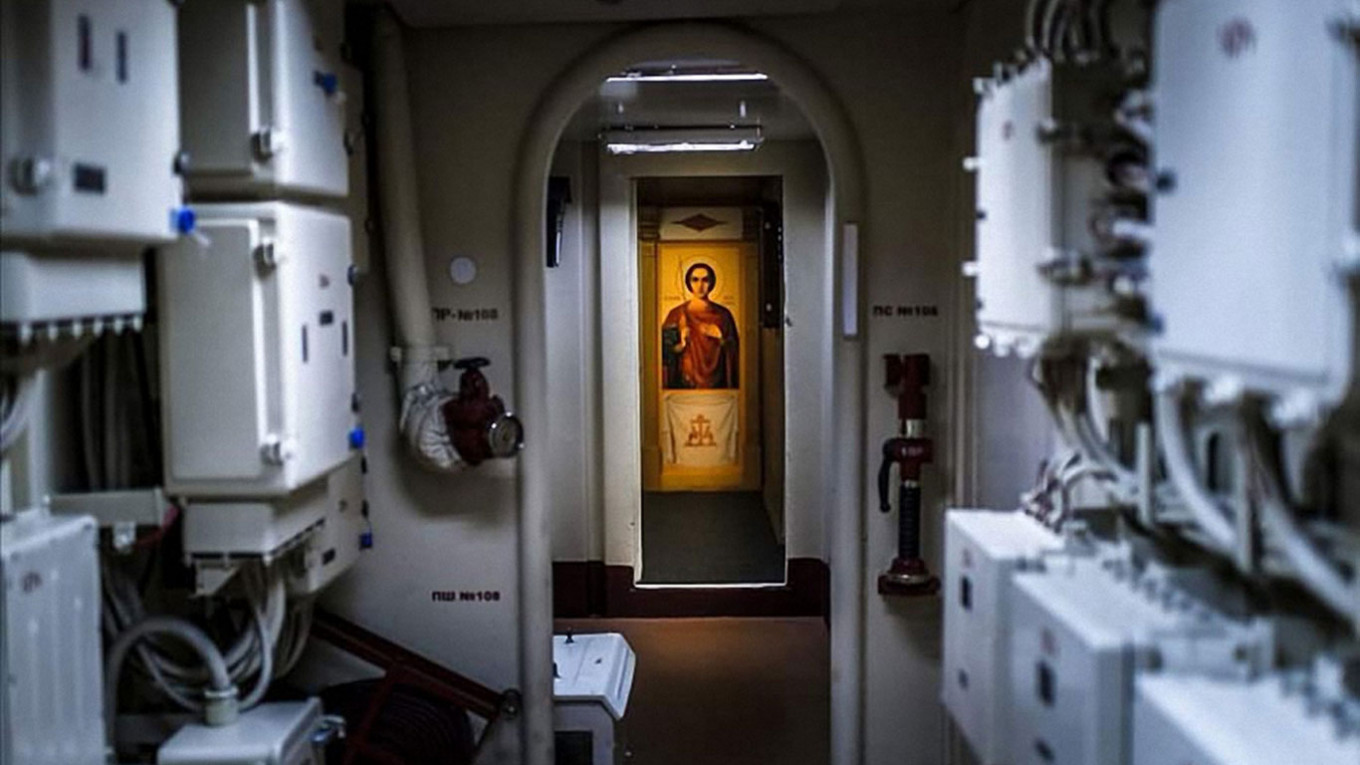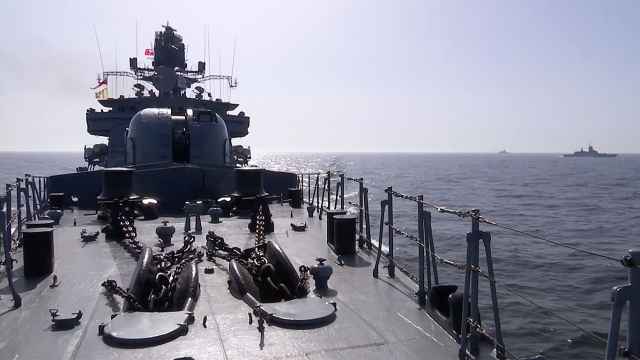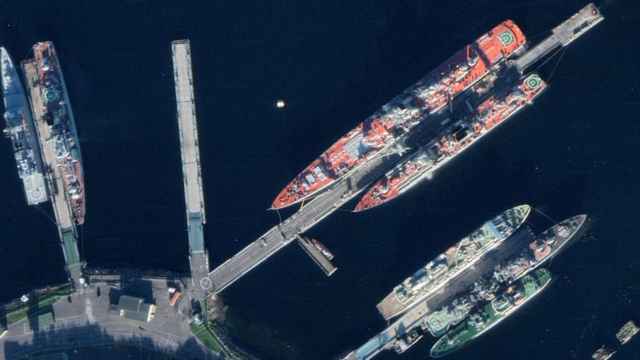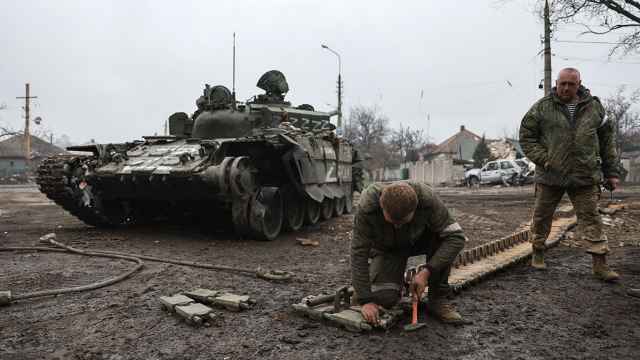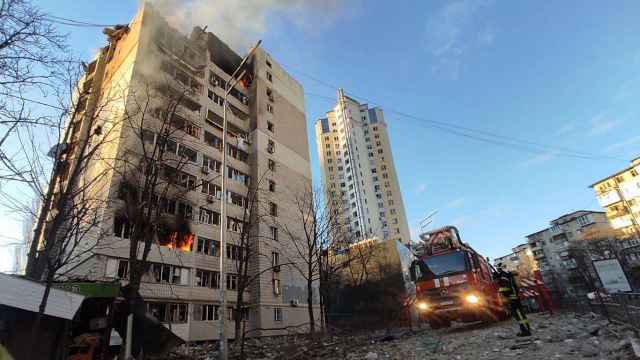The parents of sailor Yegor Shkrebets spent Sunday afternoon searching for their son among 200 servicemen lying wounded in a naval hospital following last week’s sinking of Russia’s Black Sea flagship, the Moskva.
“We looked at every burned kid. I can't tell you how hard it was, but I couldn't find mine,” Irina Shkrebets told independent Russian news outlet The Insider.
Yegor Shkrebets, a 20-year-old conscript serving on the missile cruiser Moskva as a chef, has not been in touch with his family since the ship went down after apparently being hit by Ukrainian anti-ship Neptune cruise missiles.
Despite initial Kremlin claims a “full evacuation” of the vessel took place, there was growing evidence Monday that dozens, perhaps hundreds, were killed or injured in the incident.
The failure of military officials to provide information to relatives about the fate of the crew has led to comparisons to the sinking of the Kursk submarine in 2000, when 118 Russian sailors died in a naval exercise in the Barents Sea.
A total of 37 sailors died and 100 were wounded on the Moskva, the independent Meduza news website reported Monday, citing a source in Russia’s Black Sea fleet.
Dmitry Shkrebets, Yegor’s father, posted on social network VK on Monday that three families had been in touch with him about lost relatives on the Moskva.
"We were contacted by three families from Yalta, Alupka and St. Petersburg," Shkrebets wrote. "We need written answers to our questions about the location of our children.”
The relatives of several other missing sailors confirmed to journalists Monday that they could not contact sailors who were onboard the Moskva. Some of the missing men were conscripts, with just a few months military experience.
Yulia Tsyvova told the BBC Russian service that her son, 19-year-old conscript Andrei Tysov, was killed on the Moskva. And Meduza reported the death of Vitaly Begersky, a conscript from Russia’s Far East, citing the dead man’s aunt.
Contradicting the Ukrainian missile attack version, the Kremlin has maintained the Moskva suffered an onboard ammunition fire and sank in “choppy seas” as it was being towed to safety.
Video and photos emerged Sunday showing the first images of the stricken battleship.
Open-source intelligence analysts identified the ship in the images as the Moskva, with smoke billowing from a fire not far from the cruiser’s store of 16 P-1000 Vulkan missiles.
Kremlin spokesman Dmitry Peskov responded to the images, saying Monday that officials had seen the footage but “cannot say how authentic and true it is.”
The photos of the Moskva are consistent with Ukrainian claims that two missiles struck the boat, according to Chris Parry, a former British navy officer.
“It seems that one or two missiles entered the ship just below the after pair of Vulcan anti-ship missiles,” Parry said in a tweet Tuesday.
A three-second clip that emerged Monday of the Moskva shows a tugboat from the Black Sea Fleet’s rescue squadron coming to the aid of the beleaguered battleship. The video quickly shuts off as a man nearby shouts “what the f*** are you doing?”
The Moskva is one of three elite, Soviet-made ships in the Russian fleet that are capable of carrying nuclear weapons. Each requires a crew of about 510 sailors.
Russian claims of an evacuation of the ship were consistent with the new images that showed the Moskva’s lifeboats were missing, and that no crew members were onboard.
Footage released Saturday by the Russian Defense Ministry showed senior naval officers meeting with the Moskva crew in the port city of Sevastapol. However, it was clear from the footage that not all the Moskva’s crew were present.
A Message from The Moscow Times:
Dear readers,
We are facing unprecedented challenges. Russia's Prosecutor General's Office has designated The Moscow Times as an "undesirable" organization, criminalizing our work and putting our staff at risk of prosecution. This follows our earlier unjust labeling as a "foreign agent."
These actions are direct attempts to silence independent journalism in Russia. The authorities claim our work "discredits the decisions of the Russian leadership." We see things differently: we strive to provide accurate, unbiased reporting on Russia.
We, the journalists of The Moscow Times, refuse to be silenced. But to continue our work, we need your help.
Your support, no matter how small, makes a world of difference. If you can, please support us monthly starting from just $2. It's quick to set up, and every contribution makes a significant impact.
By supporting The Moscow Times, you're defending open, independent journalism in the face of repression. Thank you for standing with us.
Remind me later.



